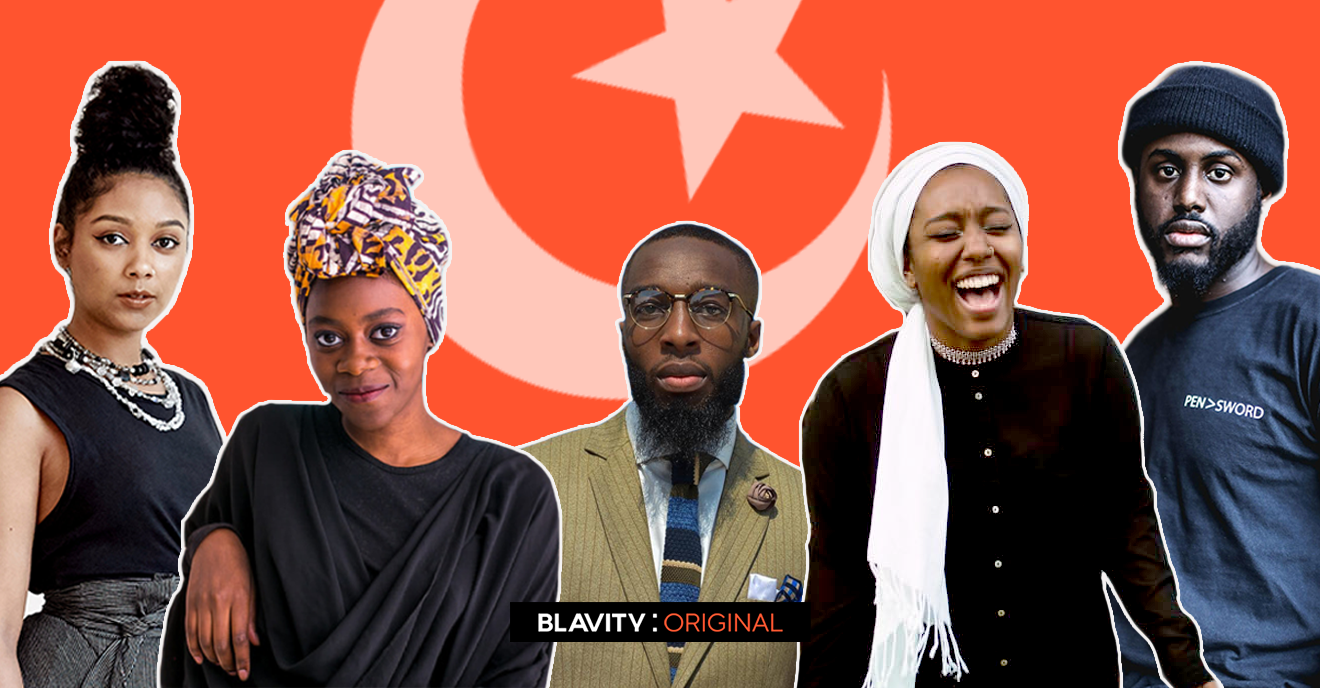Poems tell stories in the most unique ways. Not only do they narrate our lives, but poetry also has the power to express our greatest desires and can even be used as a catalyst for change. Take Langston Hughe's Let America Be America Again or Maya Angelou's Phenomenal Woman, as examples. These two poetic staples have inspired generations of Black folk to dream big with confidence and grace, in a suppressive society. Their words have become woven into the fabric of Black identity.
For the most part, our Blackness is the first feature that identifies us, but underneath that Blackness are innumerable layers and countless stories to be told. In the name of representation and dope art, here are five young Black Muslim poets, whose words add to the fabric of Black identity. They put on for the culture too.
1. Safia Elhillo
yesterday i received an Arab American Book Award for my bb, The January Children, & i’m grateful & honored but also felt it would be irresponsible to not make the following statement (pt 1/2) pic.twitter.com/8qaiuSs09R
— Safia Elhillo (@mafiasafia) November 10, 2018
In her book The January Children, Sudanese-American poet Safia Elhillo strings together a collection of poems that dissect Sudanese identity after British colonial rule.
Perhaps the most attention-grabbing revelation is in her dedication where she highlights "the generation born in Sudan under British occupation, where children were assigned birth years by height, all given the birth date January 1." Her story is one that explores the identity of being African and Arabic. Just like the collective Black experience, Elhillo's anthology replaces false narratives with ones that are more accurately fitting.
2. Sadiyah Bashir
Sadiya Bashir puts her identity as a Black Muslim woman at the center of her book of poems titled Seven. In an assembly of concise yet powerful words Bashir shares her growth as a woman, from adolescence to young adulthood. She elevates the Black woman, in poems like Maryam, which puts women's power as givers of life into perspective. Through her shorter poems, the two-time youth Grand Slam Poetry champ proves that one doesn't have to say much to say a lot.
3. Youssef Kromah
With the upcoming release of his second book, a poetry collection titled Woke: In Wake of the Wide Awakening, Youssef Kromah has many cultural insights to offer. Kromah intertwines his faith with narratives on love and systematic oppression, among other topics. From his artistic beginnings as a spoken word artist in Philadelphia featured on HBO's Brave New Voices to his current Islamic studies at Al-Azhar University in Cairo, both his faith and Blackness precede him. It's felt throughout his writings, as showcased in Dunya & the Akhirah from the soon-to-be-released Woke.
4. Rakaya Esime Fetuga
2018 Roundhouse Poetry Slam winner Rakaya Esime Fetuga's work can be found in several publications and all over the internet. Fetuga is a resounding voice in the Black British Muslim community with poetry that speaks to her Black-British identity, African heritage, youth, womanhood and Islamic faith. She is also one of the creators of the four-woman Black British Muslim group ::Nana:: Poetry Collective. Fetuga's Shine is a perfect example of how she represents for the "melanated Muslims."
5. Tariq Touré
The Baltimore poet, Tariq Touré will soon release his second collection of poems 2 Parts Oxygen: How I Learned to Breathe. In the poetic anthology, Touré will share his perspective on fatherhood, family roots and "Islam in Black America." From his many works, QADR stands out as an inspiring piece that encourages readers to have confidence in their divine purpose. It reflects Touré's ability to uplift his audience.
Many other names could go on this list of young Black Muslim poets whose prose are beautifully crafted. However, these five writers are dope representations of the poetic talent highlighting identity and Black Muslim narratives —stories that need to be told.

